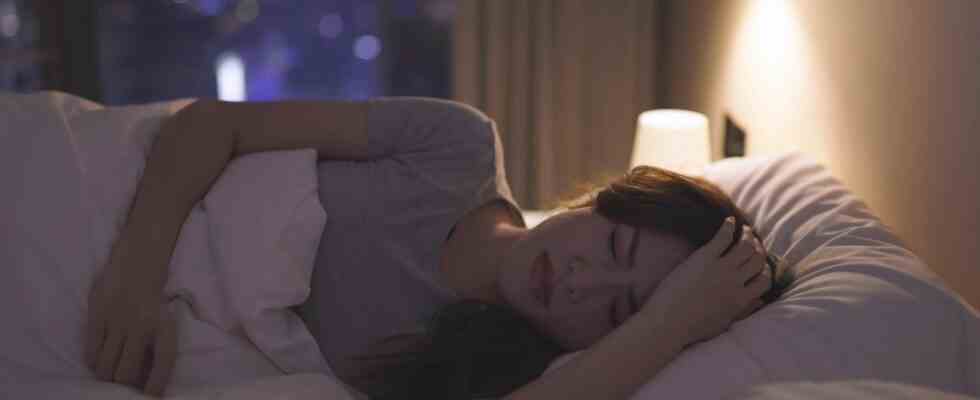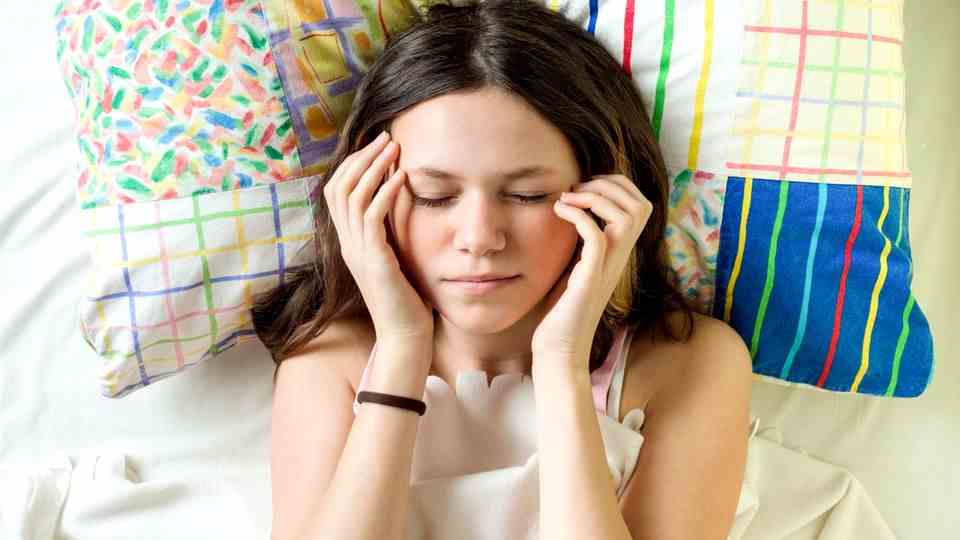New US study
Night lights, televisions or mobile phones: sleeping with lights on is bad for your health
Some people like to sleep with a night light or the TV on – that’s not a good idea for sleep and health.
© PonyWang / Getty Images
Night lights, televisions or smartphones are better left off at night. A study from the USA shows how even small amounts of light during sleep can have a negative impact on health.
Sunlight falls into the bedroom early in the morning in the summer months, the street lamp shines directly in the face or the television is on all night – some people do not sleep in a darkened room, whether intentionally or unintentionally. Researchers at Northwestern University’s Feinberg School of Medicine in Chicago have now discovered the health consequences of sleeping with lights on.
“Whether it’s from a smartphone, a television set on overnight, or light pollution in a big city, we live in the midst of an abundance of artificial light sources that are available 24 hours a day,” says study author Dr. Minjee Kim, assistant professor of neurology at Northwestern University’s Feinberg School of Medicine. Older people are already at increased risk of cardiovascular disease and diabetes. With the study, the researchers wanted to find out whether there is a connection between the frequency of these diseases and exposure to light at night, summarizes Minjee Kim.
Sleeping with light could pose health risks
For their study, the researchers used subjects who had already taken part in a long-term study on cardiovascular diseases in Chicago in the 1960s and 1970s. Blood pressure, cholesterol levels, glucose, weight, height and other risk factors for cardiovascular diseases were measured, examined and documented in the 552 participants between the ages of 63 and 84. In order to be able to determine whether and how much light the test subjects are exposed to at night, the researchers used actigraphy devices that can record the movement and rest cycles of the participants. The devices can also record and evaluate the brightness. The subjects wore the actigraphy devices at night for seven days. They also kept a sleep diary.
Less than half of the study participants spent five hours a night continuously in the dark. The rest were also exposed to some light in the middle of the night. The result of the experiment: Those who are exposed to light at night while sleeping are significantly more likely to have diabetes, high blood pressure and obesity compared to those study participants who slept in complete darkness. However, when classifying the findings, the researchers encountered a chicken-and-egg problem: Do obesity, diabetes or high blood pressure lead to people being exposed to light during sleep (e.g. because they have to go to the toilet more often and turn on the light) or does the light contribute to the development of the diseases? Further studies are needed to better understand the health impact of having lights on during sleep.
Tips for a better night’s sleep
But study author Dr. Phyllis Zee says, “It’s important to avoid or minimize exposure to light during sleep.” She gives the following tips:
- Don’t turn on the light! If you have to turn on the light at night, you should at least dim the light and it should be closer to the ground.
- Pay attention to the color of the light! Lights that are red, orange, or amber are less stimulating to the brain. It is important not to expose yourself to white or blue light.
- Sleep masks can be useful. If the lantern shines brightly into the bedroom, a sleep mask can provide the necessary darkness. If possible, the bed should be set up in such a way that no light shines directly into the face.
Sources:Study Sleep Journal, Communication from Northwestern University



